28 巻
選択された号の論文の58件中1~50を表示しています
-
原稿種別: 表紙
2002 年 28 巻 p. Cover1-
発行日: 2002/10/04
公開日: 2018/01/09
PDF形式でダウンロード (15218K) -
原稿種別: 付録等
2002 年 28 巻 p. App1-
発行日: 2002/10/04
公開日: 2018/01/09
PDF形式でダウンロード (9K) -
原稿種別: 本文
2002 年 28 巻 p. i-ii
発行日: 2002/10/04
公開日: 2018/01/09
PDF形式でダウンロード (194K) -
原稿種別: 目次
2002 年 28 巻 p. iii-vi
発行日: 2002/10/04
公開日: 2018/01/09
PDF形式でダウンロード (151K) -
原稿種別: 付録等
2002 年 28 巻 p. App2-
発行日: 2002/10/04
公開日: 2018/01/09
PDF形式でダウンロード (16K) -
原稿種別: 本文
2002 年 28 巻 p. 2-19
発行日: 2002/10/04
公開日: 2018/01/09
PDF形式でダウンロード (1235K) -
原稿種別: 本文
2002 年 28 巻 p. 20-34
発行日: 2002/10/04
公開日: 2018/01/09
PDF形式でダウンロード (1064K) -
原稿種別: 本文
2002 年 28 巻 p. 35-50
発行日: 2002/10/04
公開日: 2018/01/09
PDF形式でダウンロード (1138K) -
原稿種別: 本文
2002 年 28 巻 p. 51-68
発行日: 2002/10/04
公開日: 2018/01/09
PDF形式でダウンロード (1184K) -
原稿種別: 付録等
2002 年 28 巻 p. App3-
発行日: 2002/10/04
公開日: 2018/01/09
PDF形式でダウンロード (31K) -
原稿種別: 本文
2002 年 28 巻 p. 70-83
発行日: 2002/10/04
公開日: 2018/01/09
PDF形式でダウンロード (968K) -
原稿種別: 本文
2002 年 28 巻 p. 84-97
発行日: 2002/10/04
公開日: 2018/01/09
PDF形式でダウンロード (7758K) -
原稿種別: 本文
2002 年 28 巻 p. 98-111
発行日: 2002/10/04
公開日: 2018/01/09
PDF形式でダウンロード (938K) -
原稿種別: 本文
2002 年 28 巻 p. 112-124
発行日: 2002/10/04
公開日: 2018/01/09
PDF形式でダウンロード (813K) -
原稿種別: 本文
2002 年 28 巻 p. 125-137
発行日: 2002/10/04
公開日: 2018/01/09
PDF形式でダウンロード (926K) -
原稿種別: 本文
2002 年 28 巻 p. 138-150
発行日: 2002/10/04
公開日: 2018/01/09
PDF形式でダウンロード (841K) -
原稿種別: 本文
2002 年 28 巻 p. 151-163
発行日: 2002/10/04
公開日: 2018/01/09
PDF形式でダウンロード (892K) -
原稿種別: 本文
2002 年 28 巻 p. 164-176
発行日: 2002/10/04
公開日: 2018/01/09
PDF形式でダウンロード (897K) -
原稿種別: 付録等
2002 年 28 巻 p. App4-
発行日: 2002/10/04
公開日: 2018/01/09
PDF形式でダウンロード (19K) -
原稿種別: 本文
2002 年 28 巻 p. 178-181
発行日: 2002/10/04
公開日: 2018/01/09
PDF形式でダウンロード (307K) -
原稿種別: 本文
2002 年 28 巻 p. 182-185
発行日: 2002/10/04
公開日: 2018/01/09
PDF形式でダウンロード (331K) -
原稿種別: 本文
2002 年 28 巻 p. 186-190
発行日: 2002/10/04
公開日: 2018/01/09
PDF形式でダウンロード (314K) -
原稿種別: 本文
2002 年 28 巻 p. 191-195
発行日: 2002/10/04
公開日: 2018/01/09
PDF形式でダウンロード (325K) -
原稿種別: 本文
2002 年 28 巻 p. 196-199
発行日: 2002/10/04
公開日: 2018/01/09
PDF形式でダウンロード (309K) -
原稿種別: 付録等
2002 年 28 巻 p. App5-
発行日: 2002/10/04
公開日: 2018/01/09
PDF形式でダウンロード (27K) -
原稿種別: 本文
2002 年 28 巻 p. 202-207
発行日: 2002/10/04
公開日: 2018/01/09
PDF形式でダウンロード (400K) -
原稿種別: 本文
2002 年 28 巻 p. 208-214
発行日: 2002/10/04
公開日: 2018/01/09
PDF形式でダウンロード (536K) -
原稿種別: 本文
2002 年 28 巻 p. 215-220
発行日: 2002/10/04
公開日: 2018/01/09
PDF形式でダウンロード (450K) -
原稿種別: 本文
2002 年 28 巻 p. 221-228
発行日: 2002/10/04
公開日: 2018/01/09
PDF形式でダウンロード (587K) -
原稿種別: 本文
2002 年 28 巻 p. 229-235
発行日: 2002/10/04
公開日: 2018/01/09
PDF形式でダウンロード (425K) -
原稿種別: 本文
2002 年 28 巻 p. 236-245
発行日: 2002/10/04
公開日: 2018/01/09
PDF形式でダウンロード (691K) -
原稿種別: 本文
2002 年 28 巻 p. 246-251
発行日: 2002/10/04
公開日: 2018/01/09
PDF形式でダウンロード (388K) -
原稿種別: 本文
2002 年 28 巻 p. 252-259
発行日: 2002/10/04
公開日: 2018/01/09
PDF形式でダウンロード (531K) -
原稿種別: 付録等
2002 年 28 巻 p. App6-
発行日: 2002/10/04
公開日: 2018/01/09
PDF形式でダウンロード (20K) -
原稿種別: 本文
2002 年 28 巻 p. 262-263
発行日: 2002/10/04
公開日: 2018/01/09
PDF形式でダウンロード (130K) -
原稿種別: 本文
2002 年 28 巻 p. 264-268
発行日: 2002/10/04
公開日: 2018/01/09
PDF形式でダウンロード (380K) -
原稿種別: 本文
2002 年 28 巻 p. 269-272
発行日: 2002/10/04
公開日: 2018/01/09
PDF形式でダウンロード (310K) -
原稿種別: 本文
2002 年 28 巻 p. 273-281
発行日: 2002/10/04
公開日: 2018/01/09
PDF形式でダウンロード (663K) -
原稿種別: 本文
2002 年 28 巻 p. 282-285
発行日: 2002/10/04
公開日: 2018/01/09
PDF形式でダウンロード (304K) -
原稿種別: 付録等
2002 年 28 巻 p. App7-
発行日: 2002/10/04
公開日: 2018/01/09
PDF形式でダウンロード (22K) -
原稿種別: 本文
2002 年 28 巻 p. 288-291
発行日: 2002/10/04
公開日: 2018/01/09
PDF形式でダウンロード (381K) -
原稿種別: 本文
2002 年 28 巻 p. 292-295
発行日: 2002/10/04
公開日: 2018/01/09
PDF形式でダウンロード (368K) -
原稿種別: 本文
2002 年 28 巻 p. 296-300
発行日: 2002/10/04
公開日: 2018/01/09
PDF形式でダウンロード (378K) -
原稿種別: 本文
2002 年 28 巻 p. 301-304
発行日: 2002/10/04
公開日: 2018/01/09
PDF形式でダウンロード (345K) -
原稿種別: 本文
2002 年 28 巻 p. 305-310
発行日: 2002/10/04
公開日: 2018/01/09
PDF形式でダウンロード (415K) -
原稿種別: 本文
2002 年 28 巻 p. 311-317
発行日: 2002/10/04
公開日: 2018/01/09
PDF形式でダウンロード (586K) -
原稿種別: 付録等
2002 年 28 巻 p. 318-320
発行日: 2002/10/04
公開日: 2018/01/09
PDF形式でダウンロード (105K) -
原稿種別: 付録等
2002 年 28 巻 p. 321-324
発行日: 2002/10/04
公開日: 2018/01/09
PDF形式でダウンロード (136K) -
原稿種別: 付録等
2002 年 28 巻 p. 325-
発行日: 2002/10/04
公開日: 2018/01/09
PDF形式でダウンロード (22K) -
原稿種別: 付録等
2002 年 28 巻 p. 326-
発行日: 2002/10/04
公開日: 2018/01/09
PDF形式でダウンロード (21K)
